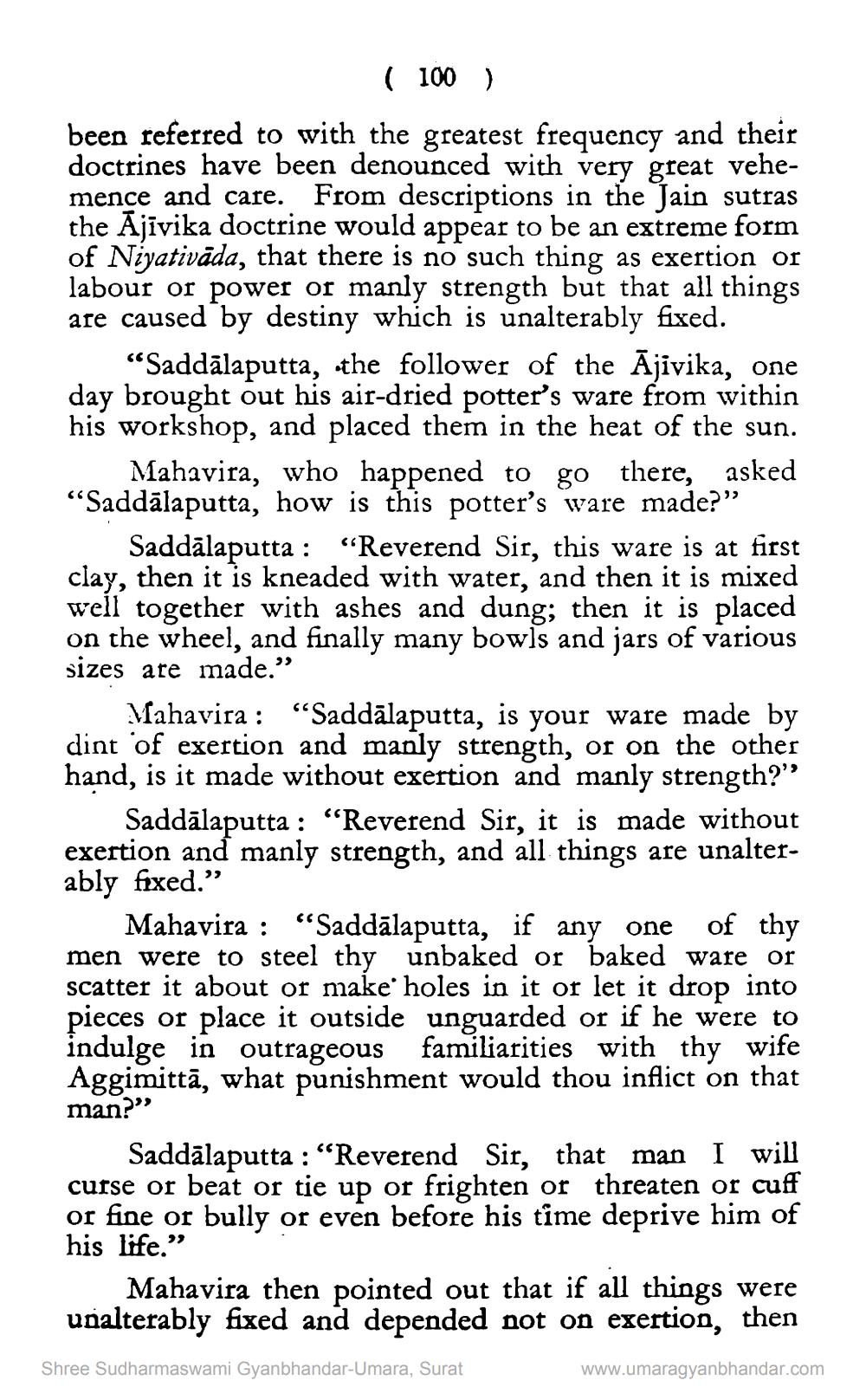________________
( 100 ) been referred to with the greatest frequency and their doctrines have been denounced with very great vehemence and care. From descriptions in the Jain sutras the Ajīvika doctrine would appear to be an extreme form of Niyativāda, that there is no such thing as exertion or labour or power or manly strength but that all things are caused by destiny which is unalterably fixed.
“Saddālaputta, the follower of the Ājivika, one day brought out his air-dried potter's ware from within his workshop, and placed them in the heat of the sun.
Mahavira, who happened to go there, asked “Saddālaputta, how is this potter's ware made?
Saddālaputta : “Reverend Sir, this ware is at first clay, then it is kneaded with water, and then it is mixed well together with ashes and dung; then it is placed on the wheel, and finally many bowls and jars of various sizes are made.”
Mahavira : “Saddālaputta, is your ware made by dint of exertion and manly strength, or on the other hand, is it made without exertion and manly strength?''
Saddālaputta : “Reverend Sir, it is made without exertion and manly strength, and all things are unalterably fixed.”
Mahavira : “Saddālaputta, if any one of thy men were to steel thy unbaked or baked ware or scatter it about or make holes in it or let it drop into pieces or place it outside unguarded or if he were to indulge in outrageous familiarities with thy wife Aggimittā, what punishment would thou inflict on that man?'
Saddalaputta : “Reverend Sir, that man I will curse or beat or tie up or frighten or threaten or cuff or fine or bully or even before his time deprive him of his life.”
Mahavira then pointed out that if all things were unalterably fixed and depended not on exertion, then Shree Sudharmaswami Gyanbhandar-Umara, Surat
www.umaragyanbhandar.com




